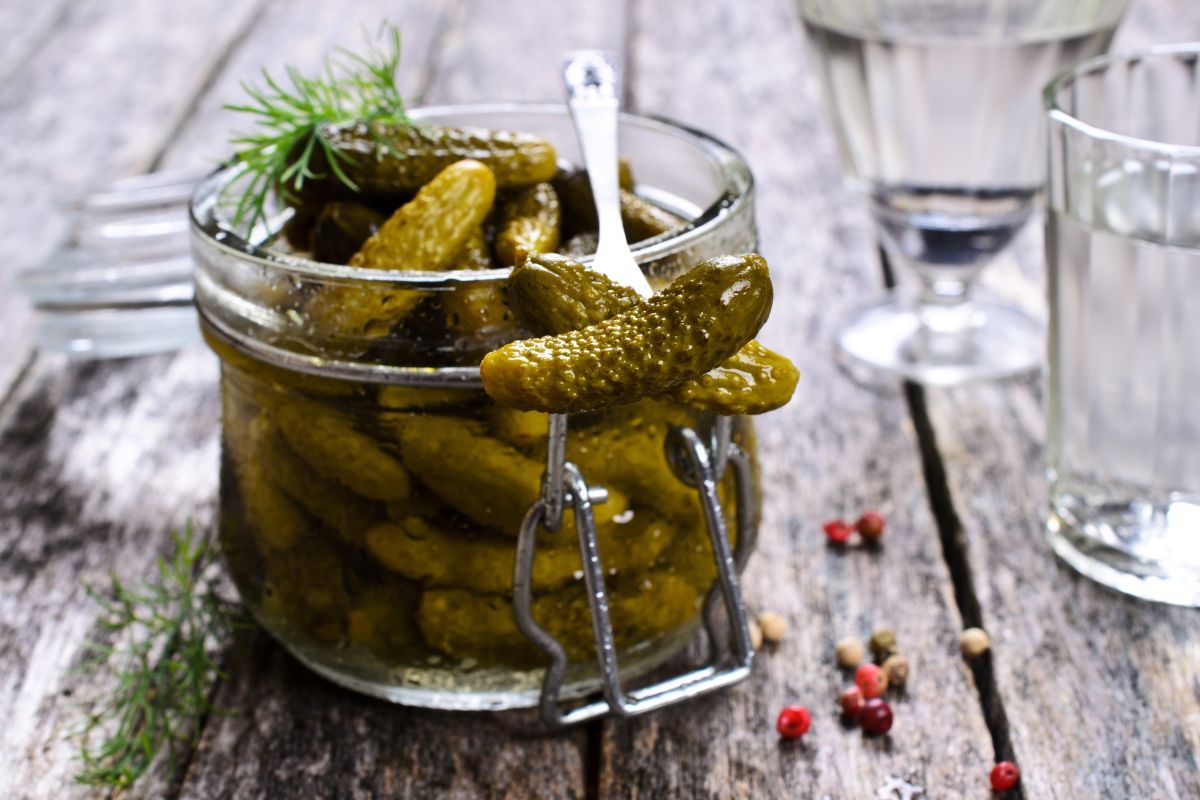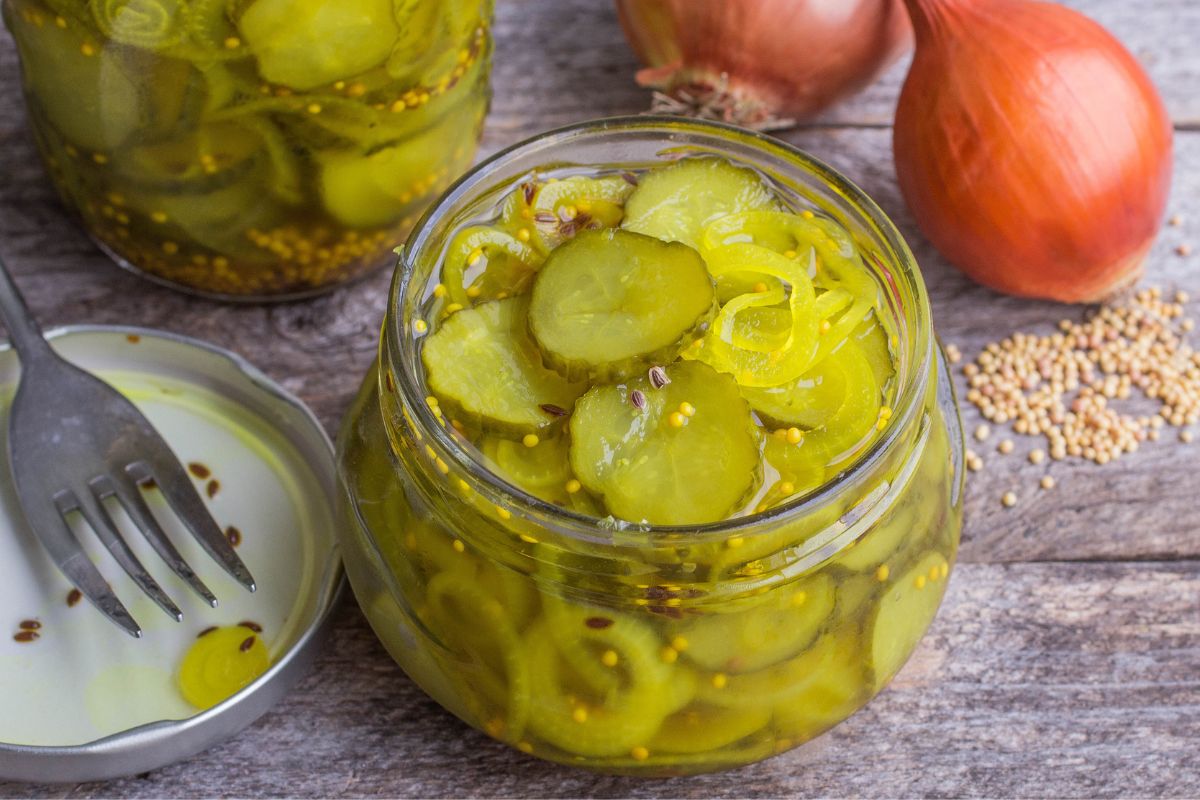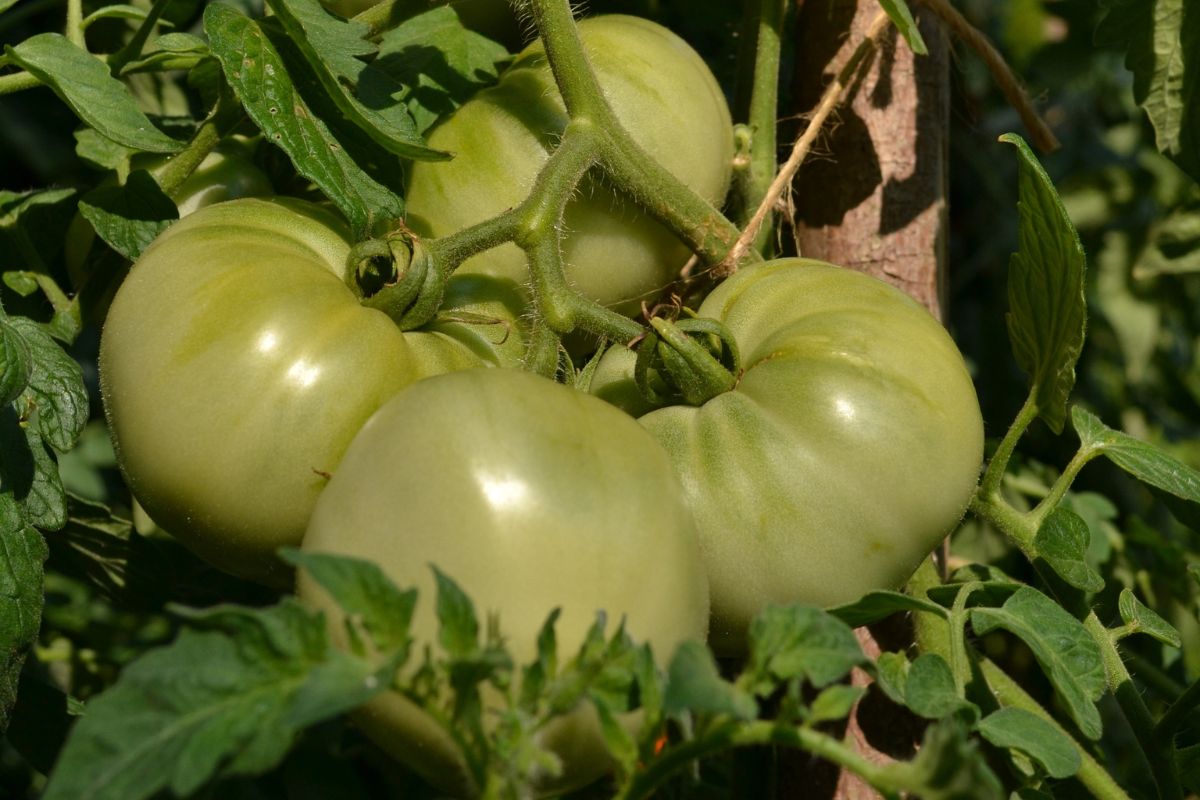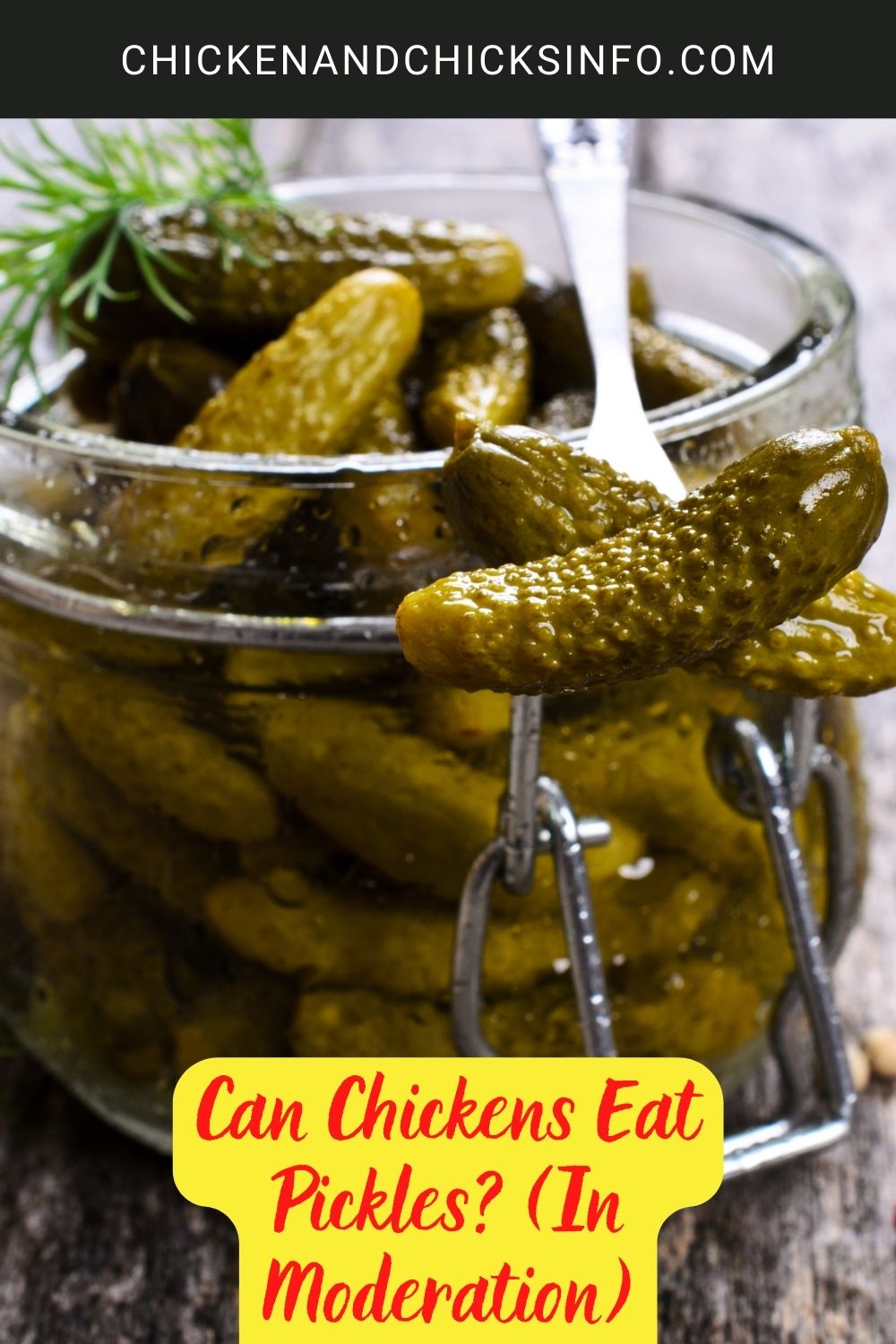
Chickens can eat pickles, yes. The preservatives and juice they’re stored in are not ideal, but it’s not harmful or toxic in any way. A small number of pickles are fine on occasion as a treat if your flock enjoys them.
Jump to:
What Are Pickles Made Of? Are They Healthy?
It’s not that crazy of a question, I wasn’t 100% sure myself until I looked up the answer.
According to wonderopolils, most pickles are made from:
- Cucumbers - the primary ingredient aka the pickle
- Vinegar - the juice that keeps them preserved
- Water
- Sugar and sweeteners - to take the edge off the sour taste
- Salt - everything has some salt in it seems!
Then there are also specific flavorings, such as dill being used in dill pickles, spices, garlic, etc.
From a health standpoint, pickles aren’t bad. But they aren’t great either - which won’t come as a huge surprise, they’re not exactly a staple of our diets.
The main issue is that they’re high in sodium and preservatives. There’s a reason why they have such a long shelf life, they’re being kept in-date by preservatives.
While they aren’t providing much in the way of the good nutrition that chicken’s need, a pickle here and there isn’t going to do any harm.
Will Your Chickens Eat Pickles If You Give Them Some?

I can’t answer this for you, you’re going to have to try for yourself and see!
Now you know that there’s no harm in giving chickens pickles, you might as well try if you have some.
I have, however, heard from a lot of backyard chicken owners that their chickens were not interested in pickles. It’s possible it’s one of the few foods a lot of chickens are not interested in.
I found this video below quite telling. Someone put a dill pickle out for his flock to see if they would eat it. I won’t spoil the surprise for you, you’re going to have to watch it…..
How to Feed Chickens So They're Healthy and Happy
Thankfully, feeding chickens is really easy. They’re great at foraging if you let them roam free-range, and they’ll eat almost everything you put in front of them.
The basic outline of providing a healthy diet for backyard chickens is:
A Quality Commercial Feed
There are various chicken feeds on the market. You should seek out a good feed that’s appropriate to the age and stage your chickens are in.
For example, laying hens need a layer feed as it’s higher in calcium and some other nutrients that’ll help them produce eggs at their best.
I’ve covered here how much feed to put out for your chickens. At least 90% of their diet will come from their feed to ensure all of their nutritional requirements are met.
Grit
If you want to know more about what grit it is, please read this post. Grit basically helps them break up food in their gizzard as chickens do not have teeth.
In the wild, chickens scratch around and find hard stones and other bits of grit themselves. In a backyard setting, we need to provide them with some.
Treats/Table Scraps
Backyard chicken owners love experimenting and seeing which foods their chickens like. It’s a huge part of raising chickens.
I’ve covered loads of different foods, such as fruits, vegetables, and grains throughout the blog. As long as a food doesn’t pose any form of health issue, you should see if they like it.
Foods Chickens Should Not Eat

It’s vitally important that you do not give your chickens any foods that could potentially be toxic or harmful to them.
This isn’t an exhaustive list, but does cover some of the more common foods that are potentially dangerous:
Green tomatoes and potatoes - When these plants are green they contain a toxin called solanine which is toxic to chickens. As does most plants in the nightshade family, always check before giving them foods from this class.
Raw or uncooked beans - Unless properly cooked, beans pose a serious health threat.
Coffee and chocolate - There are compounds in coffee and chocolate (two of my favorite things!) that are toxic to chickens, and most small animals.
Candy and sugary treats - Sugar is hard for chickens to digest and does not offer any health benefits, best avoided.
Junk foods - Junk foods are typically high in salt, sodium, and other preservatives that are bad for chickens.
Spoiled or moldy foods - It’s tempting to try and recycle or give foods that are out of date to your chickens. Only do so if they’re still fine, as in you would be happy to eat them. Mold spores are toxic to chickens.
In Summary
Now you know, pickles are not toxic or harmful to chickens so you can feed ‘em to them.
If you have some that have been hanging around the refrigerator that you were considering throwing away, why not offer them to your flock.
They may or may not eat them, but it’s worth trying. As are most foods we eat, as long as it’s done in moderation.
Feeding treats is a great way to bond with chickens - and it’s a lot of fun - just remember for their own good to keep treats to a handful at the end of the day.
Resources
What are pickles made of? - Wonderopolis.org
Are pickles good for you? - CookingLight.com





